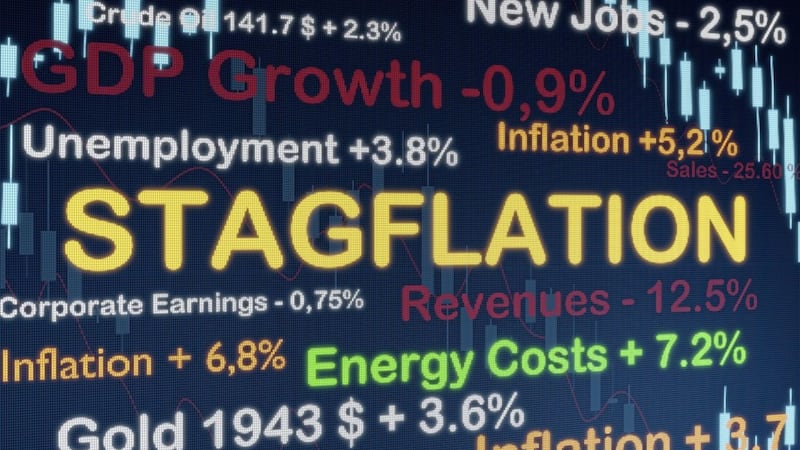BACK in 2021, I raised the notion in this column of stagflation, a notion that some thought not possible.
The current war has tipped the scales that last nudge, and now stagflation has indeed arrived with UK inflation hitting a pretty nuts nine per cent and looking worse as growth is grinding to a halt.
Stagflation is where you have rising inflation and lower growth in the economy. Sadly, incomes also come under significant pressure as they fall in real terms. The same can apply to real wealth and investments, as companies come under significant wage demands and also with the ensuing job availability, those looking for jobs demand more.
It is a toxic combination. You may remember the 1970s where Arab countries applied sanctions to western countries as punishment for their support in the Yom Kippur war. Oil tripled in price, driving inflation through the roof to 25 per cent, eroding our real wealth and buying power.
Historically, stagflation is often caused because of supply shocks and this is no different. When prices are allowed to be interfered with via ‘underhanded investing’ this will also drive up prices.
With stagflation, prices rise, but companies have nowhere to go with that price. They can’t pass it on, meanwhile their staff ask for extra wages, eating further into profits. Their growth falls, which leads to higher unemployment and naturally higher taxes to deal with that, which leads to further reductions in wealth and spending power, which leads to lower growth. You get the drift - it’s a toxic negative feedback loop.
Before we start comparing the 70s to now, things are different. Also, there is a difference between stagflation where you have lower growth than inflation, versus negative growth and inflation. The latter is crippling.
It wasn’t talked about much, but we also had stagflation in 2008 when inflation vastly exceeded the growth in the economy (GDP).
Back then it was also commodity increases that crippled prices leading to inflation. All commodities increased in price, but the oil price also drove up higher food prices, the pound devalued which further inflated prices as the UK is a net importer - As sterling falls you have less buying power with your money. Much of this has happened again.
In 2008, much of the inflation was driven by commodity purchasing (investments into oil, wheat, maize etc) after changes in the law in the US allowed purchasing of commodities in a way that shouldn’t be allowed. In 2008, we covered that issue twice in this column, and also in FT business, highlighting how two particular changes allowed a surge in commodity purchasing followed by price hikes.
In 1936, the commodity exchange act was passed on the knowledge that the market couldn’t be dominated by speculators. After ‘lobbying’ (my biggest swear word) their folk into power, Wall Street was given an exemption so they could invest way beyond previous limits. A hedge fund manager could now invest with a swap with a bank who would then place it.
Furthermore, they were also allowed to buy on margin, a process of putting down a fraction of the trade they are investing, ie, you want to invest $100m but are allowed to put down just $8-10 million of that trade. This allows way more money to be invested into a strategy that drives up prices beyond what is appropriate or sustainable.
Word for word, my entry in 2008 said: “Failing economies are sat between struggling house prices, poor spending on the high street, record debt and the threat of higher interest rates because of inflation driven by the outside forces above”.
House prices are not failing, but given record UK debt, the rises in interest rates would have an unnecessary impact on spending power and slow the economy and housing market significantly.
Supply/Brexit issues, and wages, alongside sustainable food provision are all big contributors. More on what to do about protecting your money in periods of stagflation next week, however, consider that last month I ate like a king with top quality, locally produced sustainable food in a great town south of Barcelona for a third of UK prices. Something doesn’t add up there for those differences.
Peter McGahan is the chief executive of independent financial adviser Worldwide Financial Planning, which is authorised and regulated by the Financial Conduct Authority. If you have a financial query call Darren McKeever on 028 6863 2692, email info@wwfp.net or visit wwfp.net







